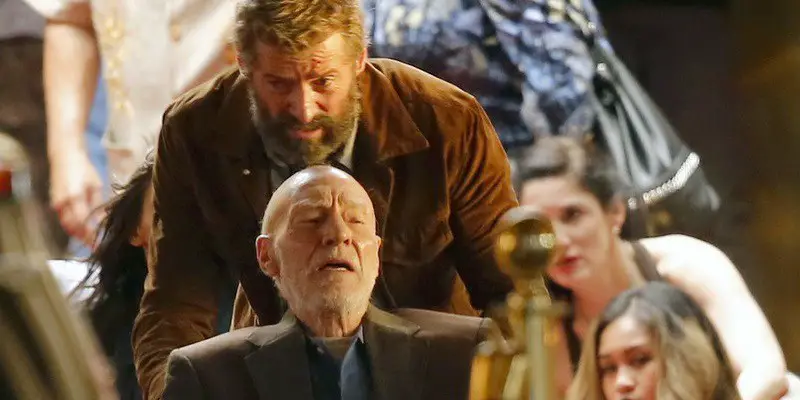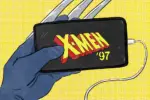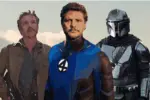The last chapter of Hugh Jackman’s Wolverine provided an element that recent superhero movies have been lacking: grit.
In many ways, this installment of the solo Wolverine series is the one that comic lovers have been desperately waiting for, and may be the most accurate representation of the Wolverine character. We’ve seen some brutal Wolverine scenes in the past, but the amount of decapitations, disembowelments and face shredding in “Logan” makes “Kill Bill” look like a rom-com.
In the original X-Men trilogy (“X-Men” from 2000, “X2” from 2003, “X-Men: The Last Stand” from 2006), Jackman’s Wolverine certainly has some elements from the comic—iconic slicked back hair, rebellious attitude — yet, the movies seemed to have a certain disconnect with X-Men’s greatest son.
Instead of the brutality, gore and vigilantism one might expect from Wolverine, loyal comic fans often got a grumpy caricature of the raging vigilante, who all too often fits himself into a spandex suit. That being said, Jackman’s portrayal of Wolverine has often carried the franchise, which, for the most part, has fallen flat on their face.
This is what has become expected from the 20th Century Fox superhero regiment: shitty movies that butcher the most popular Marvel characters with a jumbled universe that often provides no connections between its heroes. The two Fox-owned franchises of “The Fantastic Four” and “X-Men” have continually fallen behind the success of the main Marvel Cinematic Universe (MCU) under Disney. “Fantastic Four” in particular has shown that even in the golden age of superhero movies, horrific films can still be made.
With “X-Men,” the problem has mainly been with continuity. For Disney, the Marvel franchises have seamlessly linked up its many successful franchises to create a dynamic integrated universe, designed for sustainability and making boat loads of cash. Fox, on the other hand, can’t even maintain continuity within just one franchise. The original trilogy of X-Men has really nothing to do with the solo Wolverine films, or the resurgent First Class series.
Today, the same Fox, which has continually murdered budding superhero franchises, may have created the future of the superhero film.
Logan was a far cry from the royal blues of Captain America and the heroism of “The Avengers.” The MCU creates a world of superhero idealism where the good guys kick ass and save the day, while seeming inherently invincible. There’s never a point where the viewer ever really buys the superhero’s mortality, making it a tad bit predictable. How many of us honestly believed that Iron Man was actually dead after falling from the sky at the end of “The Avengers”?
When the MCU can’t even kill off minor characters like S.H.I.E.L.D. agent Phil Coulson, it’s pretty clear that we shouldn’t expect a divergence from that theme any time soon. To be fair to the MCU, they really can only go in that direction.
It’s always been sort of an unwritten rule for superhero movies, especially under the Disney brand, that attracting children is a must. Adding kids to the market is what makes the big money in the end. Not only does it make up a large percentage of the box office, but the merchandising opportunities are what empires are built on. Getting in the business of adding more adult elements or killing off major characters also takes away the ability to constantly expand the universe.
If Coulson stayed dead, the MCU wouldn’t have infiltrated cable TV with “Agents of S.H.I.E.L.D.”; if any major characters had died in “Civil War,” there wouldn’t be such a stacked roster for “Infinity War”; if Iron Man had died in “The Avengers” the MCU would have died with it. The MCU has cornered the market on the prototypical superhero film, but being the king comes with its drawbacks. Since an Avengers-like series can never stray from it’s mold under Disney, the gritty comic book stories may never be shown.
With Disney dominating the traditional market, Fox has finally learned their lesson: they can’t beat Disney at their own game. Instead they are going after an all new market—the gritty, R-rated movie.
The aspect that made “Logan” stand out was the prevalent sense of humanity. During the scenes where Wolverine isn’t ripping fully grown men to thin slices, he almost seems like an average guy. He is a deeply flawed man coming to grips with his own mortality, drowning his sorrows with drugs and cheap booze. Logan is no longer Wolverine at this point (thus the title), he’s just a man beaten down by the cruel world, as he watches his mentor and the franchise’s great father, Charles Xavier, slowly lose control of his powerful mind.

Possibly the most human thing about the film is it doesn’t seem like a superhero film at all. Rather, “Logan” plays with the idea of a post-superhero/post-mutant world. The world doesn’t need superheroes or mutants, and instead, hunts them to extinction. In this dystopian world, scientists like Dr. Zander Rice and the “Reavers” exploit harvested mutations to create a new breed of fabricated mutant children to be used as weapons.
Arguably the strongest two mutants of the old world slowly lose what made them strong. Wolverine slowly loses his healing factor, while Xavier’s great mind becomes demented with the decay of time. After Logan comes to terms with his own morality, he leads an exodus of the genetically altered children, which includes the brilliant rendition of X-23. In the process, he buries his old friend, Professor X, signaling the official end of the X-Men as it was once known. Wolverine ends up saving the children who represent a somewhat hopeful future for mutant-kind, which results in his own death.
In the end, the superhero fan must finally grapple with the one thing missing from the modern superhero film—the death of an icon (no, Superman’s death in “Batman V. Superman does not count). The death of Wolverine should be seen not only as a solemn end of Hugh Jackman’s reign as Logan, but also as the beginning of an era of superhero films open to experimentation into nuanced sub-genres, delving away from the same old cookie-cutter superhero epic. With Deadpool’s ballsy and crass success in 2016 and Logan’s gory and dark hit from 2017, we may already be witnessing what comes after the MCU bubble eventually pops.


















[…] from “Everybody Loves Raymond” star Ray Romano, Oscar winner Allison Janney and singer-actor Hugh Jackman, earned “Bad Education” a 93% rating from Rotten Tomatoes. The movie is available to stream on […]
[…] from “Everybody Loves Raymond” star Ray Romano, Oscar winner Allison Janney and singer-actor Hugh Jackman, earned “Bad Education” a 93% rating from Rotten Tomatoes. The movie is available to stream on […]